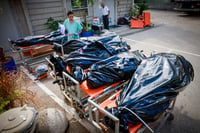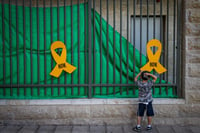
The Schneider Hospital experts’ report summarized the medical and shocking findings regarding the women and children hostages released in the first deal, as reported by the Ma'ariv website. The study collected data from the computerized medical records of 19 children aged 2 to 18, and seven women aged 34 to 78. The hostages examination included six nuclear families and seven children who were abducted and held alone in captivity.
The hospitalization duration of the hostages ranged from one day to nine days. Among the hostages, 70% had no home to return to.
The expert report reveals that ten hostages experienced prolonged constipation due to the persistent starvation, thirst, and the little food they received, which was difficult to digest.
Conversely, some hostages were affected by the diet in a different way: two women and nine children suffered from prolonged diarrheal, with stool tests showing the presence of multiple fecal bacteria, a result of severe hygiene conditions.
The report also indicates that all hostages suffered from starvation and had poor nutritional status. According to the hostages' accounts, their diet consisted mainly of little rice and white bread.
Laboratory tests showed elevated levels of the enzyme CPK, indicating significant muscle damage, likely due to prolonged sitting in captivity without movement.
Blood tests revealed infections and unusual infections such as: tick-borne fever, Q fever transmitted through dust inhalation or contact with sick animals, and Murine fever caused by bacteria.
All patients underwent psychological evaluations and received psychological support. They all reported psychological terror, isolation, intimidation, restricted food and water, and psychological abuse.
Three toddlers hoarded food they received after being released and saved it for later. Some experienced immediate anxiety disorders, and some began psychiatric medication treatment.
















0 Comments